/topics/panchayati-raj-institutions
Panchayati Raj Institutions
IRRD invites applications for Doctoral and Post-Doctoral Fellowships, Gurgaon - Apply by February 15, 2012
Posted on 15 Feb, 2012 08:27 AMContent courtesy: DevNetJobsIndia
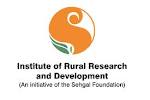
The Institute of Rural Research and Development (IRRAD) is an initiative of S M Sehgal Foundation, a leading nonprofit organization working towards furthering rural development in India. It envisions rural people across India motivated and empowered to make their lives more secure and prosperous. IRRAD designs, tests and replicates scalable community-based models for rural development in the areas of water management, agriculture, sanitation, governance and education. It also builds capacities of communities and community-based institutions to enable them to undertake their own development.
Community monitoring in water and sanitation projects - A facilitators manual by PRIA
Posted on 02 Feb, 2012 11:59 AMThis manual is based on the work that PRIA was involved in that included facilitating the process of social development and monitoring, and for guiding the process of developing models for community monitoring linked to community action, for child survival and development in six project sites in India.
This manual is divided into three key sections:
Koodam – Breaking hierarchy, building democracy - Paper published in Integral Leadership Review
Posted on 08 Jan, 2012 03:59 PMThe paper published in the Integral Leadership Review argues that hierarchy and bureaucracy are two of the most common features of governance systems that play a determining role in shaping the organisational culture, systemic re
Life, livelihoods, ecosystems, culture: Entitlements and allocation of water for competing uses
Posted on 27 Dec, 2011 05:10 PM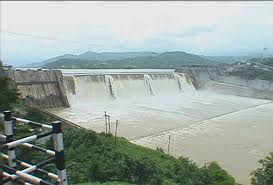 This report has been prepared by the members of the working group set up by the Forum for Policy Dialogue on Water Conflicts in India on the issue of “Entitlements and allocations for livelihoods and ecosystem needs". The introductory chapter sets out the context of the report. The immediate context is the work of the Forum over the last 4-5 years, and the learning that this particular issue leads to many water conflicts in India.
This report has been prepared by the members of the working group set up by the Forum for Policy Dialogue on Water Conflicts in India on the issue of “Entitlements and allocations for livelihoods and ecosystem needs". The introductory chapter sets out the context of the report. The immediate context is the work of the Forum over the last 4-5 years, and the learning that this particular issue leads to many water conflicts in India.
Managing drinking water security - A handbook for Gram Panchayats by the Department of Drinking Water Supply (MoRD)
Posted on 27 Jul, 2011 10:03 PM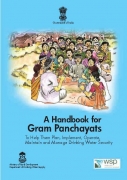 This handbook for Gram Panchayats has been prepared by the Water and Sanitation Program (World Bank) for the Department of Drinking Water Supply, Ministry of Rural Development, Government of India.
This handbook for Gram Panchayats has been prepared by the Water and Sanitation Program (World Bank) for the Department of Drinking Water Supply, Ministry of Rural Development, Government of India.
The Department of Drinking Water Supply (DDWS) launched the National Rural Drinking Water Program (NRDWP) in April, 2009. The NRDWP builds on experiences gained through past efforts by many stakeholders and brings all existing rural drinking water initiatives under a single program. The focus of the NRDWP is to ensure drinking water security for all rural citizens in India. Drinking water security means providing every rural person with enough safe water for drinking, cooking and other domestic needs at all times and in all situations, including periods of drought and flood and for livestock.
Assessment study of impact and sustainability of Nirmal Gram Puraskar – A report by CMS Environment
Posted on 24 Jun, 2011 11:02 PMNGP was initiated in Oct 2003 to encourage Panchayati Raj Institutions (PRIs), block and districts to take up sanitation promotion, a post achievement, award-cum-fiscal incentive scheme. The eligibility criteria for the PRIs to receive NGP include: Gram Panchayats, Blocks and Districts, which achieve 100 per cent sanitation coverage in terms of: (1) 100 per cent sanitation coverage of individual households (2) 100 per cent school and anganwadis sanitation coverage (3) Free from open defecation and (4) Clean environment maintenance (liquid and solid waste management).
Enhanced quality of life through sustained sanitation - India country paper for South Asia Conference on Sanitation
Posted on 24 Jun, 2011 10:09 PM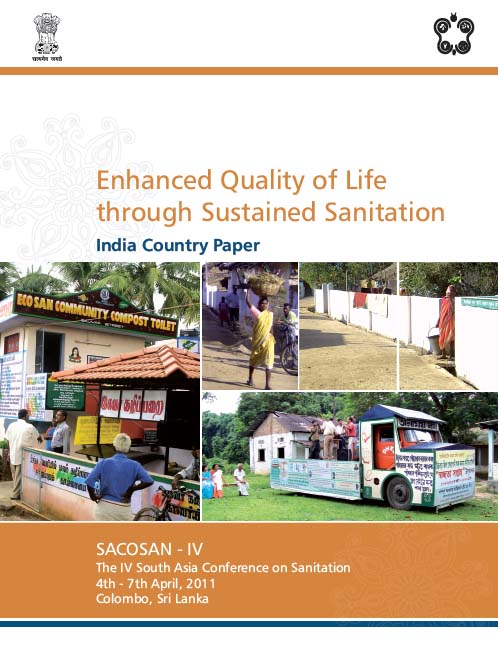 This India Country Paper on Enhanced Quality of Life through Sustained Sanitation was prepared for South Asia Conference on Sanitation (SACOSAN) IV held at Colombo, Sri Lanka in April, 2011.
This India Country Paper on Enhanced Quality of Life through Sustained Sanitation was prepared for South Asia Conference on Sanitation (SACOSAN) IV held at Colombo, Sri Lanka in April, 2011.
In rural sanitation, India’s flagship rural sanitation programme, the Total Sanitation Campaign (TSC), continues to be implemented with renewed vigour, and improvements in multiple facets of the programme. The TSC programme was given a further boost with the introduction of the Nirmal Gram Puraskar (NGP), an innovative incentive scheme for Gram Panchayats, Blocks and Districts. The rural sanitation sector has continued to receive increasing budgetary support.
Water governance guidelines for practitioners - Sahjeevan's experiences in decentralised drinking water management
Posted on 20 Jun, 2011 08:50 PM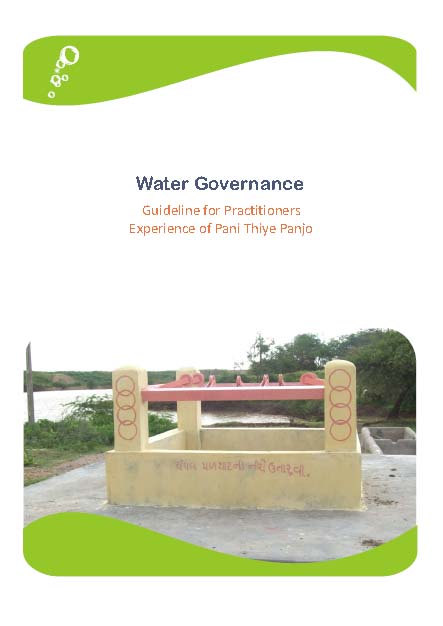 This report is based on the experience of women’s collectives promoted by Sahjeevan and of several member organizations of Abhiyan on local water governance, in particular on the demonstrated models of decentralized drinking water that they have taken up in several villages.
This report is based on the experience of women’s collectives promoted by Sahjeevan and of several member organizations of Abhiyan on local water governance, in particular on the demonstrated models of decentralized drinking water that they have taken up in several villages.
Water has been the central theme for development in Kutch. In the last two decades, a scaling up process of decentralized drinking water, popularly known as Pani Thiye Panjo, has been initiated in around hundred villages of Abdasa taluka in Kutch district of Gujarat focusing on development of local drinking water sources, their strengthening and building capacities of communities for maintenance and management of the systems to develop drinking water security at the village level.
The concept of Pani Thiye Panjo, has been well accepted as Abdasa model, which besides providing drinking water security, initiated policy dialogues at the local level on issues such as protection of groundwater, pricing mechanism of water (local vis-à-vis external sources), role of Panchayati Raj Institutions in water governance, role of local youth in developing their technical capacities and development of social capital in management of drinking water systems.
From dreams to reality - Compendium of best practices in rural sanitation in India - A document by the Water and Sanitation Programme and the Ministry of Rural Development
Posted on 19 Jun, 2011 05:50 PMThis compendium by the Water and Sanitation Programme and the Ministry of Rural Development, Government of India presents case studies about the achievements and experiences of different situations, institutional models, community mobilisation approaches, supply chain management techniques, capacity building methods, convergence of various programmes, school sanitation, innovative approaches etc from different states and regions in the country.
After a decade of launching the Total Sanitation Campaign, India has seen significant successes in terms of the sanitation coverage, creating open defecation communities/GPs and solid and liquid waste management. Thousands of success stories have emerged across the country while still there are many challenges in making the entire rural India Nirmal and sustaining the changes achieved.
Livelihood augmentation in rainfed areas – A strategy handbook for practitioners by Development Support Centre
Posted on 19 Jun, 2011 10:33 AM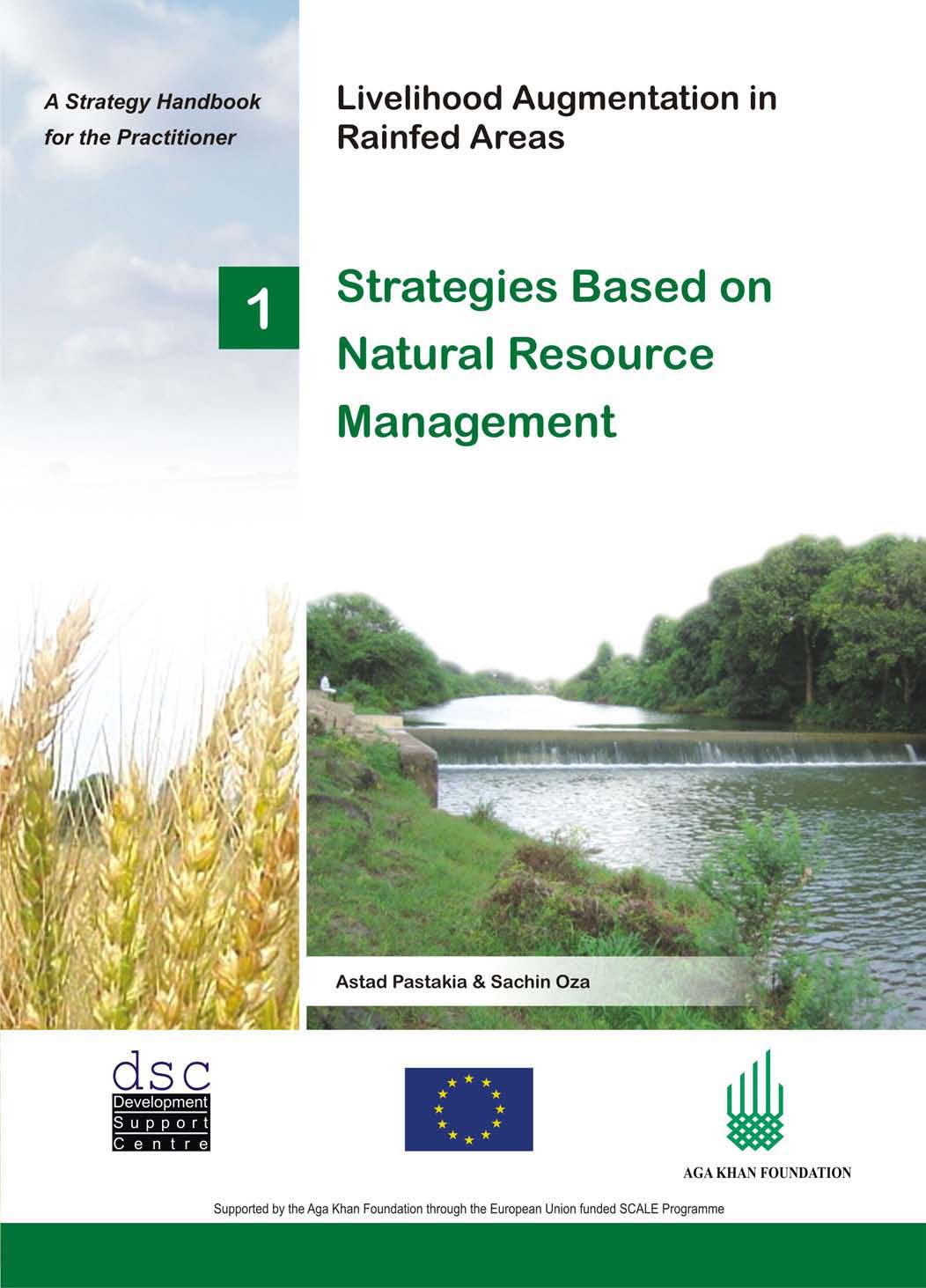 It is a compilation of ongoing, successful strategies piloted and upscaled by a range of development agencies in different parts of the country. The handbook is presented in four volumes under a common framework and focus on initiatives related to: participatory natural resource management; rural entrepreneurship development; use of information communication technology and institution development.
It is a compilation of ongoing, successful strategies piloted and upscaled by a range of development agencies in different parts of the country. The handbook is presented in four volumes under a common framework and focus on initiatives related to: participatory natural resource management; rural entrepreneurship development; use of information communication technology and institution development.
About 400 million rural poor reside in about 200 poorest districts of the country that constitute rainfed areas. Scientific research has revealed a vast untapped potential in rainfed agriculture where crop yields are lower than their potential by two to five fold. A large number of innovative projects and ideas have been tried to address this issue, although documentation has been uneven and fragmented. Drawing upon such experiences, the handbook points towards new vistas and untapped opportunities in meeting the challenge of enhancing food security with limited water resources and improving the carrying capacities of rainfed areas to match the rapidly increasing populations in these regions and elsewhere.




